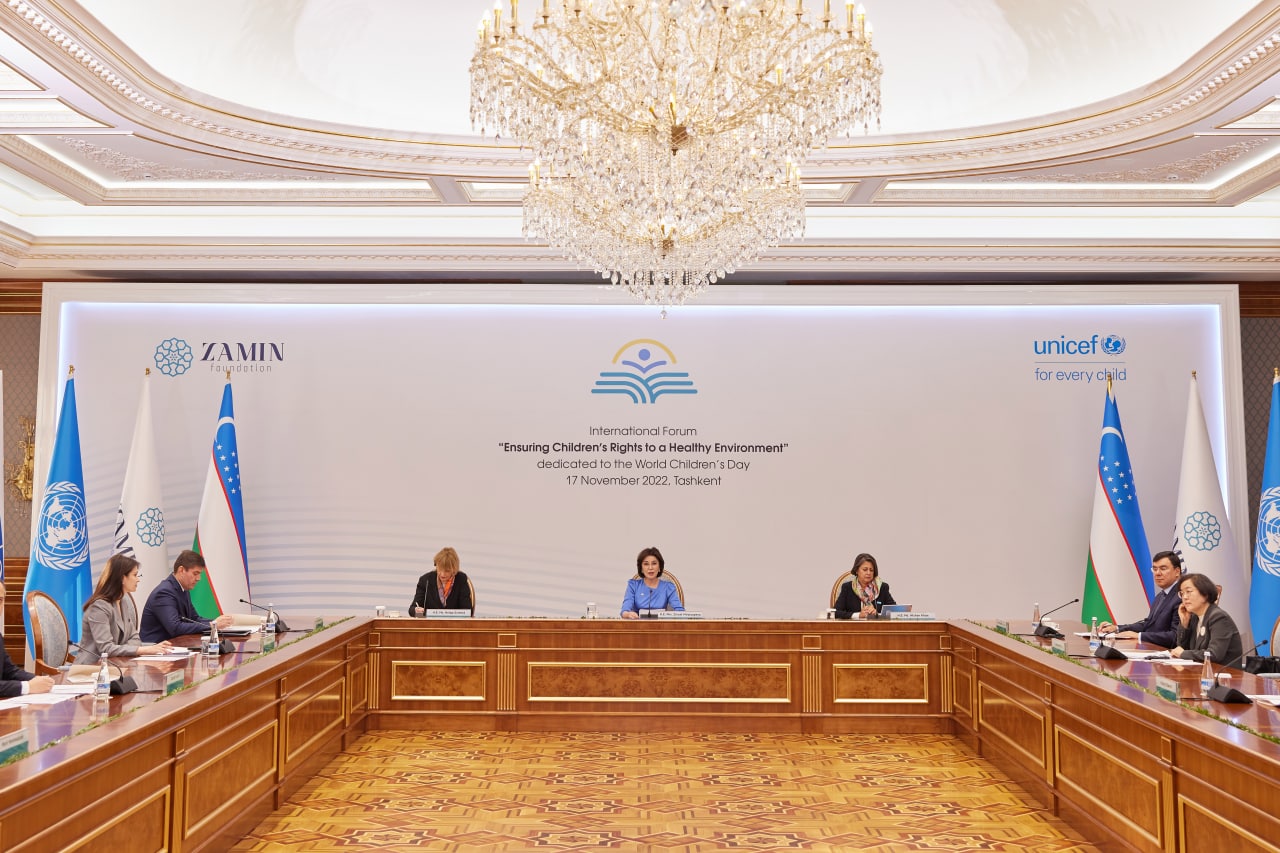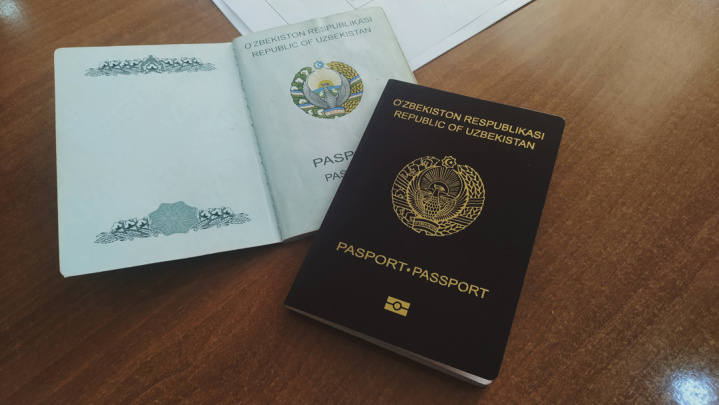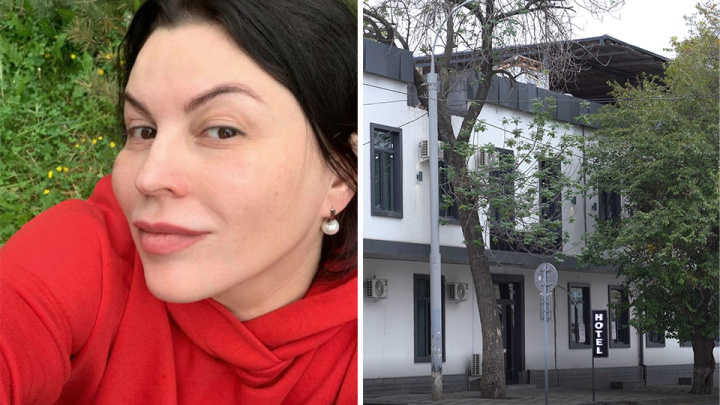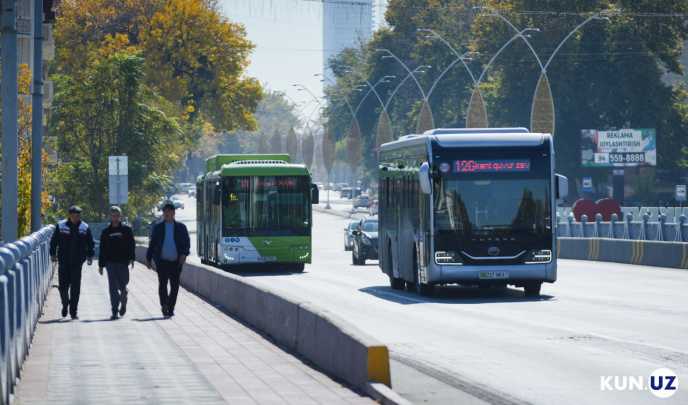The event was attended by the UN leadership and its constituent entities, international and regional organizations, the diplomatic corps operating in Uzbekistan, government agencies, national human rights institutions, civil society institutions, as well as representatives of scientific and pedagogical circles of China, South Korea, Japan, Azerbaijan, Malaysia, Hungary and other countries and eco-activists.
Chairman of the Board of Trustees of the “Zamin” Foundation, Ziroat Mirziyoyeva, gave a speech at the forum.
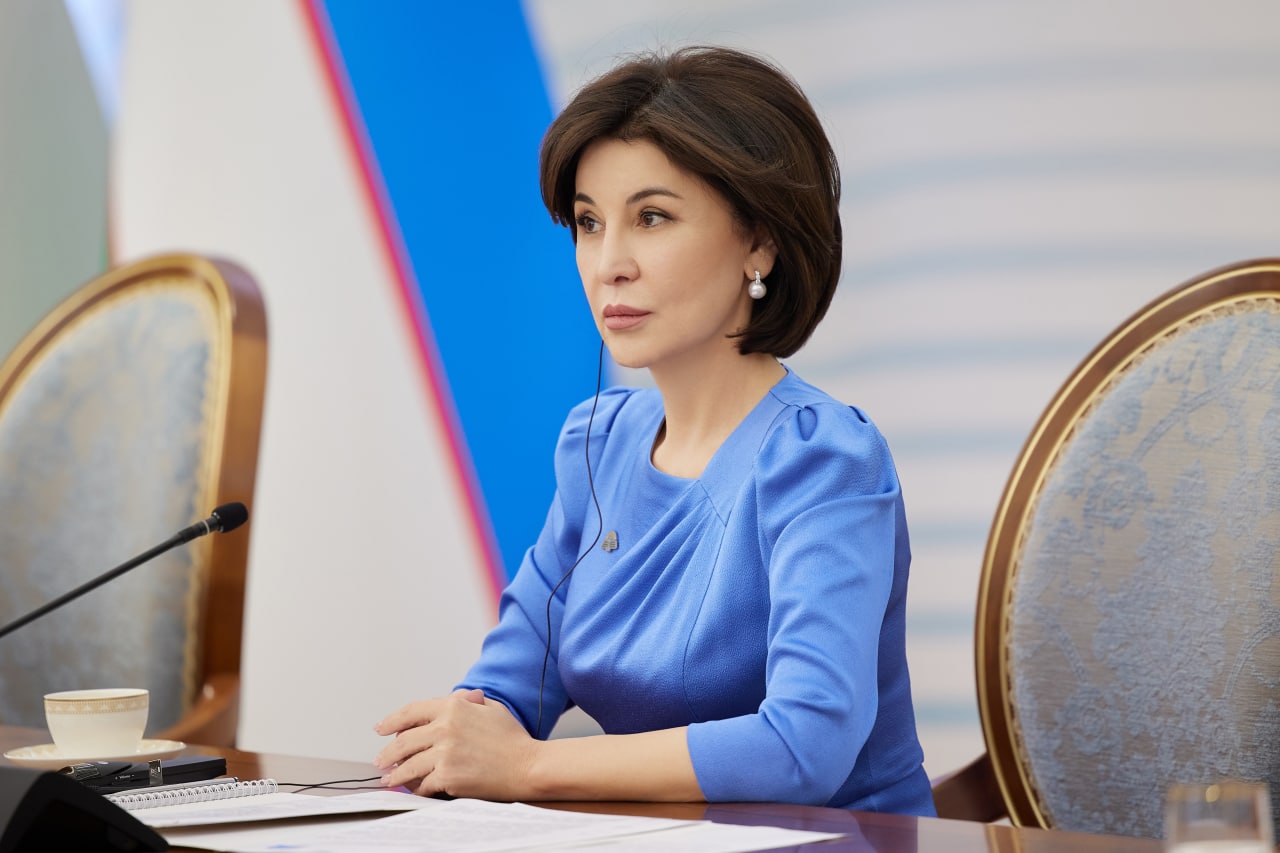
“We wholeheartedly welcome the fact that Uzbekistan joined the declaration on children, youth, and efforts to combat climate change. This is an important step, a sign of our country’s commitment to fighting for children’s lives, for their bright future. Healthy planet, clean air, safe environment. These are the children’s reality. We cannot just watch. The contribution of each of us, every action we take for nature, plays an important role in achieving a sustainable environment. We can achieve this goal only with our joint efforts and concrete actions,” Ziroat Mirziyoyeva said.
It should be noted that Uzbekistan was the first country in the CIS to join this declaration.
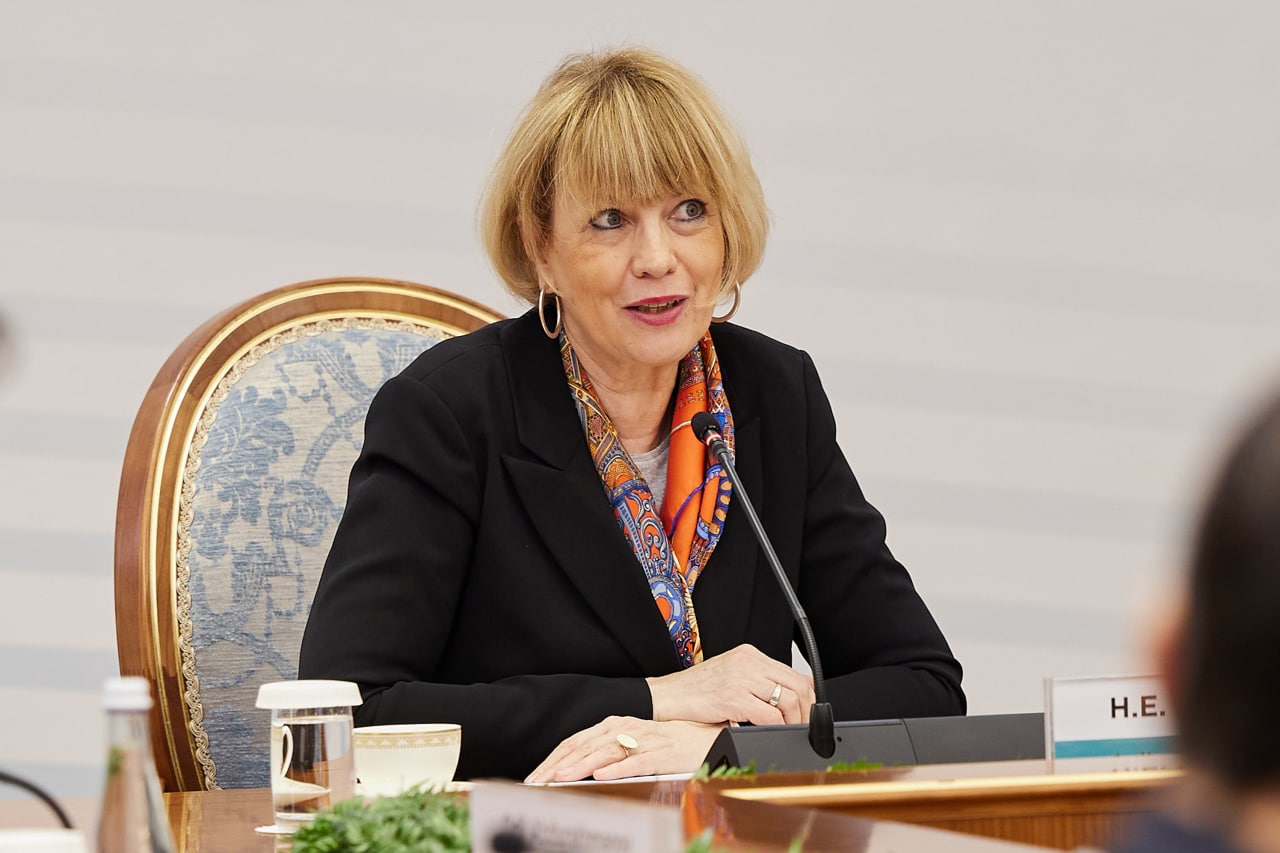
The Declaration sets out a number of commitments by governments to consistently take into account the rights and interests of children at all levels in climate policy and action.
The forum was devoted to mitigating the negative effects of climate change on the environment, effective realization of human rights, especially the rights of the young generation.
The forum participants expressed a unanimous opinion that climate change is one of the main threats of our time, which directly affects the quality of life of people, especially young people and children. The alarming numbers and facts of those who have spoken indicate the need to solve this problem without delay.
In particular, David R. Boyd, the UN special rapporteur on human rights and environmental issues, emphasized in his video message that every child and teenager on our planet has the right to live in a clean, healthy and sustainable environment.
“But the problem is that there is a huge gap between the inspirational talk about this right and the reality that millions of children around the world face in their daily lives. Air pollution kills more than 600,000 children every year; hundreds of millions of children do not have access to safe drinking water and nutritious food; children are exposed to toxic chemicals such as lead and mercury that can harm their development and negatively impact their lives.
At the same time, the right to live in a clean, healthy and sustainable environment is a tool that can be used by children and young people to accelerate the actions of governments to protect the environment. I think we all need to create opportunities for children to participate in the legal process and have a say,” Mr. Boyd said.
Helga Schmid, Secretary General of the Organization for Security and Cooperation in Europe, also provided current information on the topic. She also emphasized that children are vulnerable to the wide-ranging effects of climate change.
“According to recent studies, children born in 2021 will experience 7 times as many anomalous heat waves, twice as many wildfires and nearly three times as many droughts compared to their grandparents born 60 years ago. Therefore, it is impossible not to agree with the opinion of the UNICEF organization that “climate crisis is a crisis of children’s rights”, she said.
UNICEF Regional Director for Europe and Central Asia, Afshan Khan, confirmed that finding a solution to the climate crisis is the urgent priority of our time. She said that in the regions she represents alone, 198.5 million children suffer from various threats related to ecology and environment.
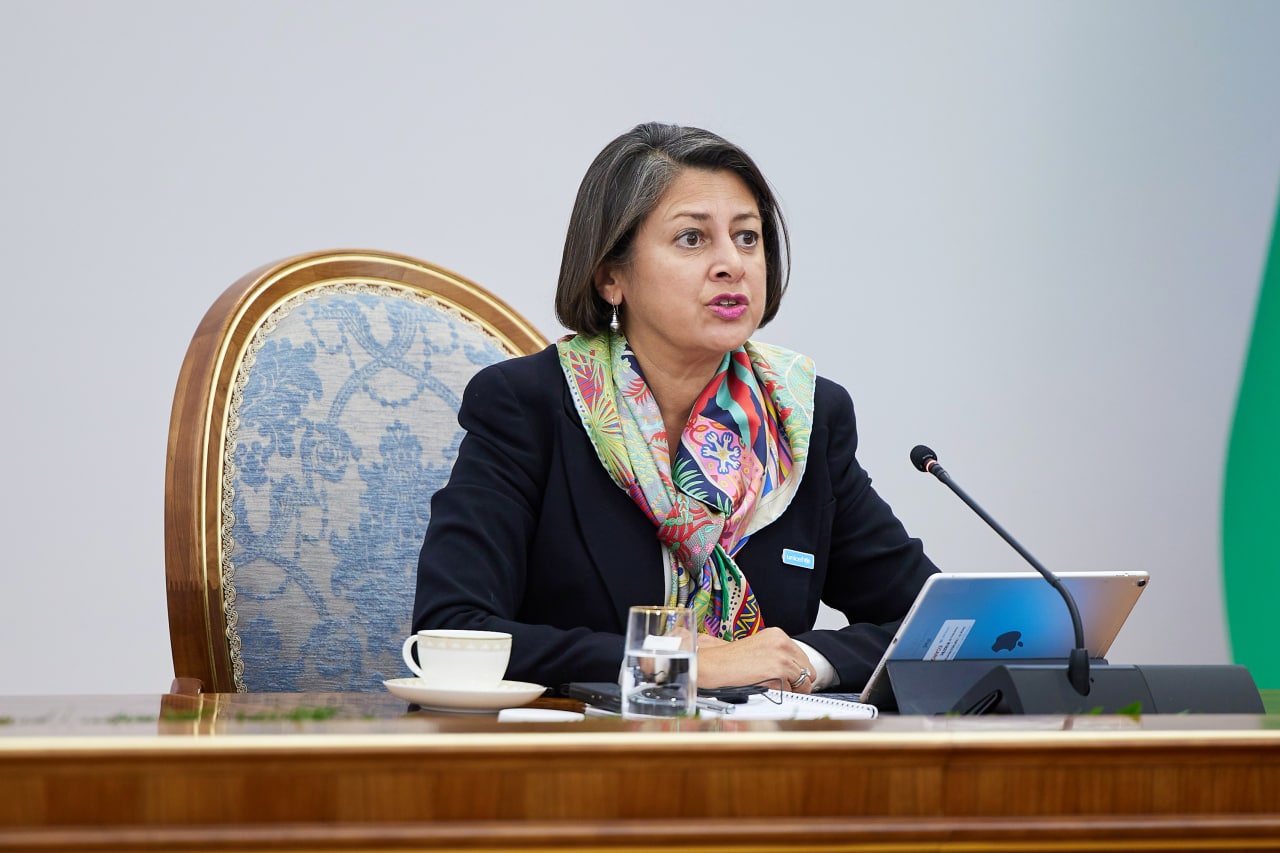
“Although children are not the cause of the climate crisis, they feel its effects disproportionately. Therefore, the best investment we can make for children now is to ensure that the services they need to live, grow and thrive are resilient to climate and environmental shocks; let’s support all children and young people in their aspirations to achieve the “green transition” and to improve the education and skills they will need to build a prosperous world for all,” Mrs. Khan said.
Inger Andersen, representative of the United Nations Environment Program (UNEP), offered one of the solutions to confront environmental threats:
“We need to take necessary measures to unify all programs to combat climate change, environmental pollution. We need to establish and implement the best possible quality standards for environmental control. We need to find intersections to advance environmental action, so that the voice of the youth can be heard. Let the financial flows from harming the planet be directed to its welfare. We must do everything we can to give our children the right to a stable future. For this, we need a strong partnership. In this regard, we are proud and appreciate our cooperation with the “Zamin” Foundation and many other organizations,” Inger Andersen said.
The forum was an effective platform for exchanging practical ideas on global and national efforts to prevent environmental problems and threats by improving the legal framework.
At the end of the event, the Final Document was adopted, calling on the international community to strengthen international, regional and national efforts to combat the negative consequences of the climate crisis, putting children’s rights and interests at the center of its climate action.
For information: World Children’s Day was announced in 1954 and is celebrated annually on November 20. The celebration of World Children’s Day by UN member states is a unique opportunity to raise public awareness of the promotion and protection of children’s rights and to create a favorable environment for children around the world through dialogue.

